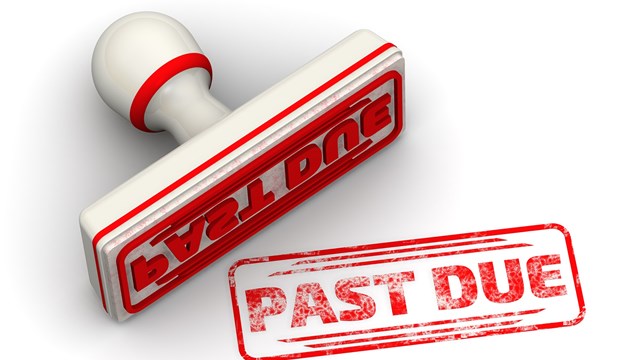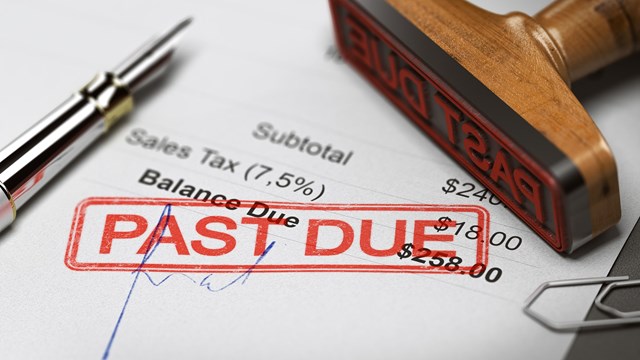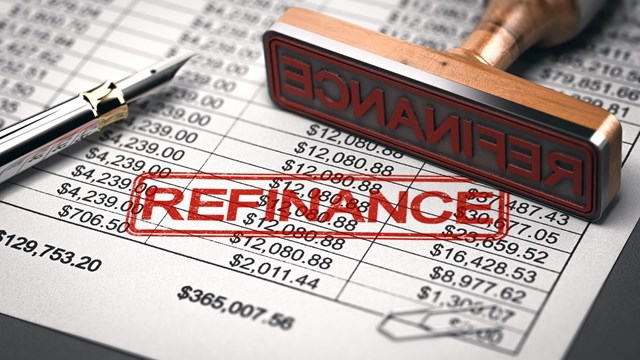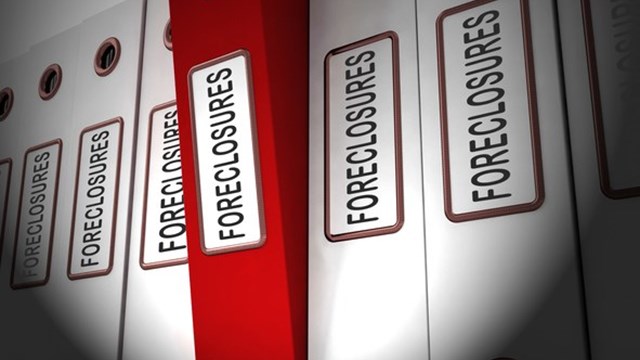
Monthly charges, including common charges, emergency repairs, special assessments, maintenance fees, dues and so forth, are a big part of owning a condominium in New Jersey.
When an owner is late, or misses monthly payments entirely, it affects the association as a whole and can adversely impact the entire community. There is less revenue that month, so savings may have to be raided to cover operating costs. Property managers have to spend time better invested elsewhere dealing with the problem. Legal fees may have to be shelled out. And so on.
What steps can a board take to make sure their association's owners keep up with payments? And what recourse do boards have when said payments are late, or missed for months at a time? Let's take a look.
The Two-Percent Problem
The word arrear is similar in sound and spelling to rear, as in one's hindquarters. And indeed, both words share the same Middle English root. To be in arrears—the word is always used colloquially in the plural—is just a snazzy, legalese way of saying to be behind in one's payments.
While no one presumably wishes to be in arrears (for reasons we'll get to in a moment) the vicissitudes of life, livelihood and the economy ensure that the occasional delinquency is inevitable.
"There's always about two percent of people in arrears [in a given HOA]," says Michael Cervelli, president of Cervelli Management in North Bergen. "Sometimes more."
Late payments can be the result of laziness, inattention to detail, apathy or sometimes, an inefficient mail carrier. More often that not, though, delinquent payments are calculated - the result of an intentional financial strategy.
"They are prioritizing their debts," explains Vincent Gaudio, president of Collexx, a collection agency in Long Valley. "The homeowner says, 'If I don't pay my mortgage, they foreclose on my home. If I missed a car payment, they take my car.' The consequences for missed payments are greater elsewhere."
Of course, homeowners associations are not banks with armies of clerks on hand to move fast on any missed payment. While they do ultimately have the power to foreclose on a property if the situation worsens, that eventuality is far from immediate, and comes with attendant legal costs. For the HOAs involved, collecting arrears can be a real headache.
Collection Protocol
"It's important to know," says Michael Pesce, president of Community Management Corp. in Clifton, "every association has its own collection policy. So we [as managers] don't dictate the policy—they establish it."
He goes on to say that there are subtle differences in the policies, usually varying according to the size of the condominium association. "If I were king," Pesce says, "I'd have them all consistent but I'm not." Despite differences between communities, the basic collection protocol usually works like this:
There is usually a grace period—five days after the first of the month, say—after which a late fee is assessed. The homeowners association then sends a letter informing the owner of the delinquent status of the payment.
If the account continues to be in arrears after two or three months, depending on the HOA's policy, the matter is sent to the association's legal counsel. The delinquent owner then receives a collection notice from the attorney, which carries more weight than the association's own letter. Some attorneys who specialize in collection do as a matter of course notify credit agencies of the delinquency. Often, though, the fact that the letter is from a lawyer is enough to compel the delinquent owner to action.
"What's important are the perceived consequences," Gaudio says.
While the attorney letter is effective, it is also expensive—sometimes prohibitively so.
"In smaller HOAs a few months might be 50 dollars," notes Pesce. "That's not enough critical mass to justify the legal fee."
More often than not, if an owner doesn't pay after notices from the board and from the attorney, it's because he can't pay, not because he doesn't want to. Regardless of the circumstances, the HOA has little choice but to take action.
"At that point it goes to collection," Cervelli says. "A lien is placed on the unit, and foreclosure may occur."
Foreclosure is not a given, however. For one thing, it's no walk in the park to foreclose on a lien in New Jersey. "It's not an easy process," says Pesce. "It's a complicated, time-consuming endeavor."
It may also not be worth the hassle. "If an owner isn't making payments to the association, ordinarily he's also in default on his mortgage," says Pesce. "You have to ask if there's enough equity in the unit to justify foreclosure."
"Once it gets to that point," adds Cervelli, "it's usually difficult to resolve."
While letters and liens are effective, there are other, more psychological, methods for dealing with delinquents, such as rescinding various privileges until overdue fees are forthcoming.
"The other thing that is a very effective tool—for any association that has recreational amenities, is to hold those amenities hostage," says Pesce. "We have a lot of success at pool badge time."
Taking Steps
So what can boards do to prevent delinquency in the first place? For one thing, make sure that contact information for all owners is accurate and up-to-date.
"The first thing you should do if a payment is late is contact the homeowner," says Gaudio. "If a lot were simply told [they're overdue], they'd get back on track."
Too many homeowners associations have incomplete records, he says. "You have to have home phone numbers, work numbers, and at this point a cell phone number as well."
The success rates at Collexx, Gaudio's collection agency, speak to the importance of effective communication.
"We collect maybe 90 percent of past due association fees, as opposed to 20 percent of general collection," he says.
This supposes that the owners weren't aware of the delinquency, or were aware and couldn't come up with the money. "There's a difference between someone refusing to pay and someone unable to pay," notes Cervelli.
While boards must stick to the letter of the law, and don't grant anyone preferential treatment—Cervelli and Pesce both stressed the importance of this—it is within the board's power to work with the delinquent owners as they see fit.
"The goal is to resolve it amicably," says Cervelli.
For example, say two owners have been late with payments for three months. Owner A is a woman in her late fifties, an veteran association member with a history of paying her bills on time, who had to take an unpaid leave of absence from her job to recover from breast cancer treatment. Owner B is the scion of a major hotel chain, who has withheld his payments to protest what he considers the association's tardy snow removal that winter—even though he was wintering at his family's retreat in Bora Bora at the time. Owner B also is habitually late with his payments.
The board must go through the same notification process with both—the letter from the association, the letter from the attorney and so forth—but rather than put a lien on Owner A's unit, you may work out a payment plan to cover the costs.
If Owner A "is in a temporary situation, and she agrees she'll be in good standing"—as she'll be returning to work in a few weeks—"you work that out," Cervelli says.
As for Owner B, he is clearly not respecting the rules, and the board owes him nothing.
"You don't have the right to withhold maintenance to complain about services," says Pesce. "They are two different things. We're not going to tolerate that. You tell the guy, 'The other 99 owners had the same snow removal you did, and they all paid, so how fair is that?'"
If a resident hasn't followed the rules to the letter before this, however, such flexible arrangements are not possible.
"You must be diligent and timely, so it's the same thing and fair for everyone," says Pesce.
For all that can happen to a delinquent homeowner—letters, liens, foreclosure, wage garnishment, and so forth—the best practice for a board is to be diligent, stay on top of things and try to nip problems in the proverbial bud.
"If you have a hundred owners in the building, you'll usually have two problems," says Cervelli. "But if you're diligent, that number can go down."
Greg Olear is a freelance writer, novelist, web designer, astrologer and stay-at-home dad living in New Paltz, New York.









Leave a Comment